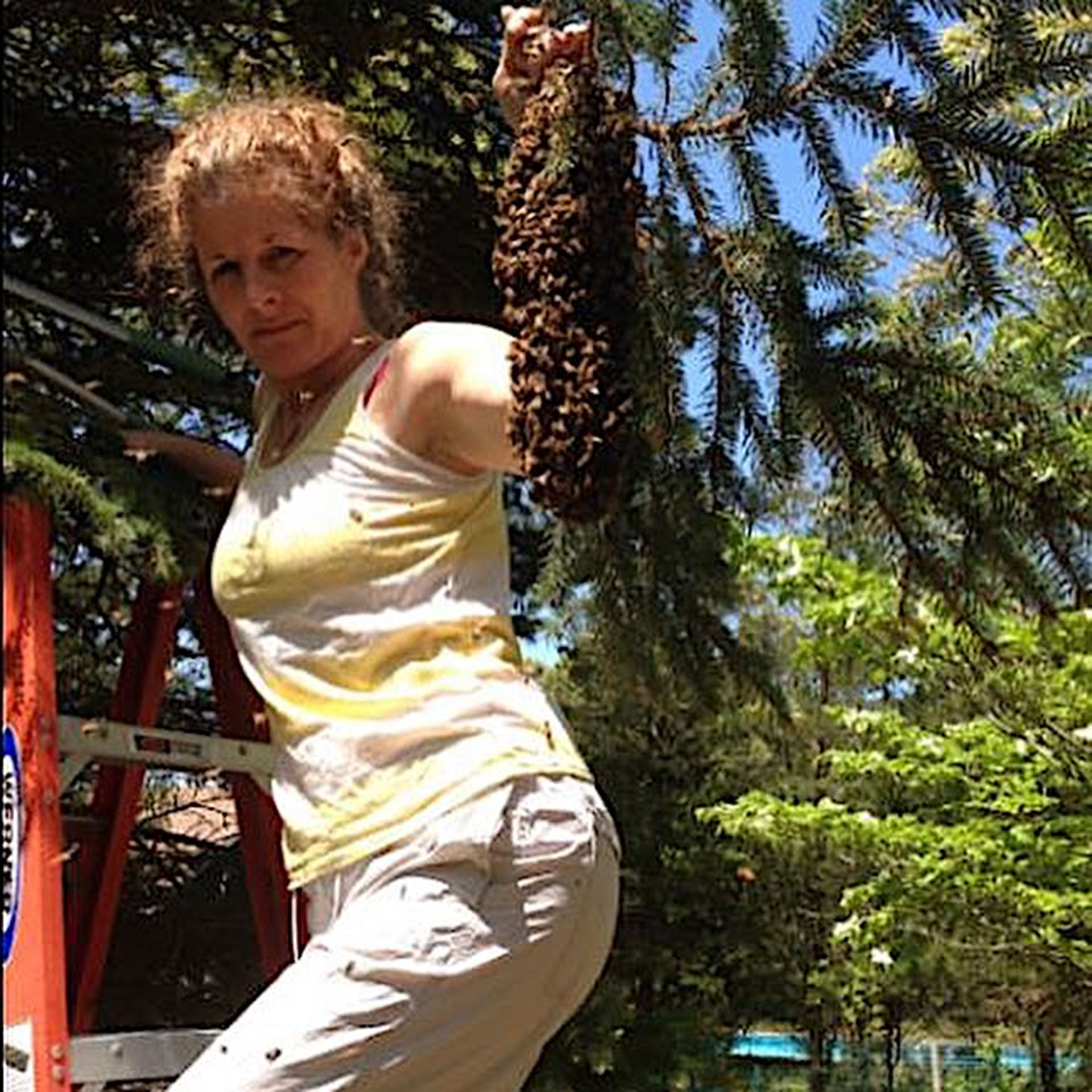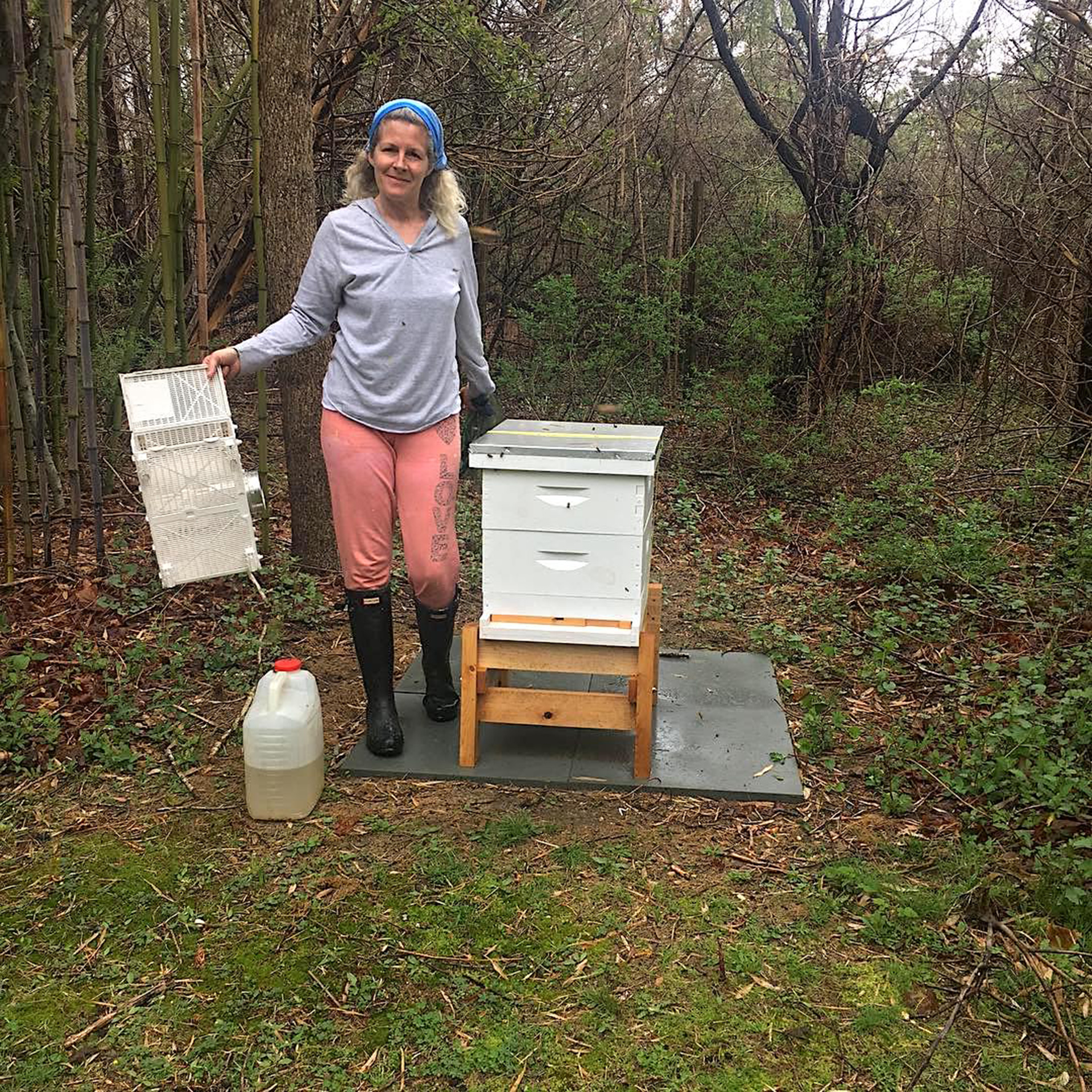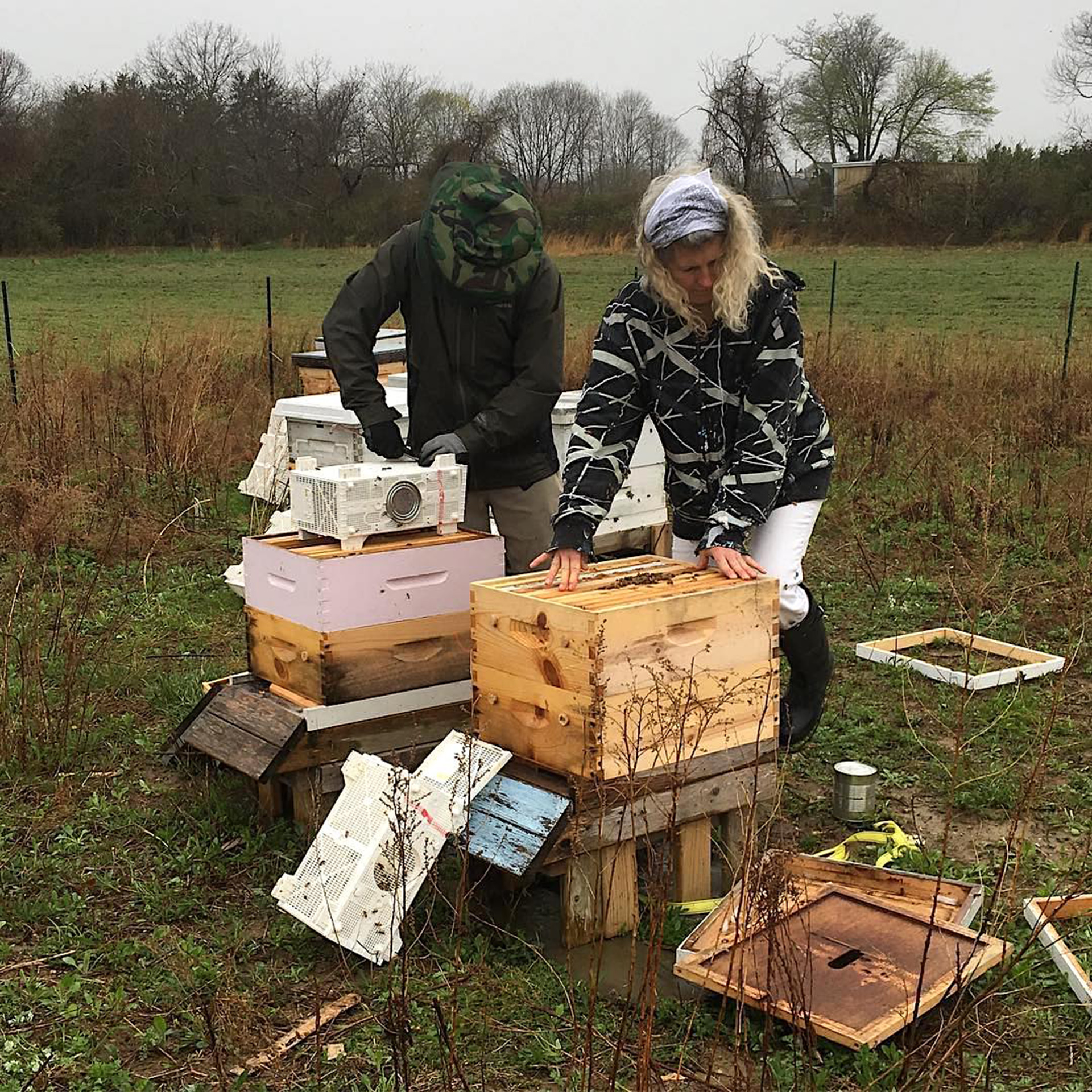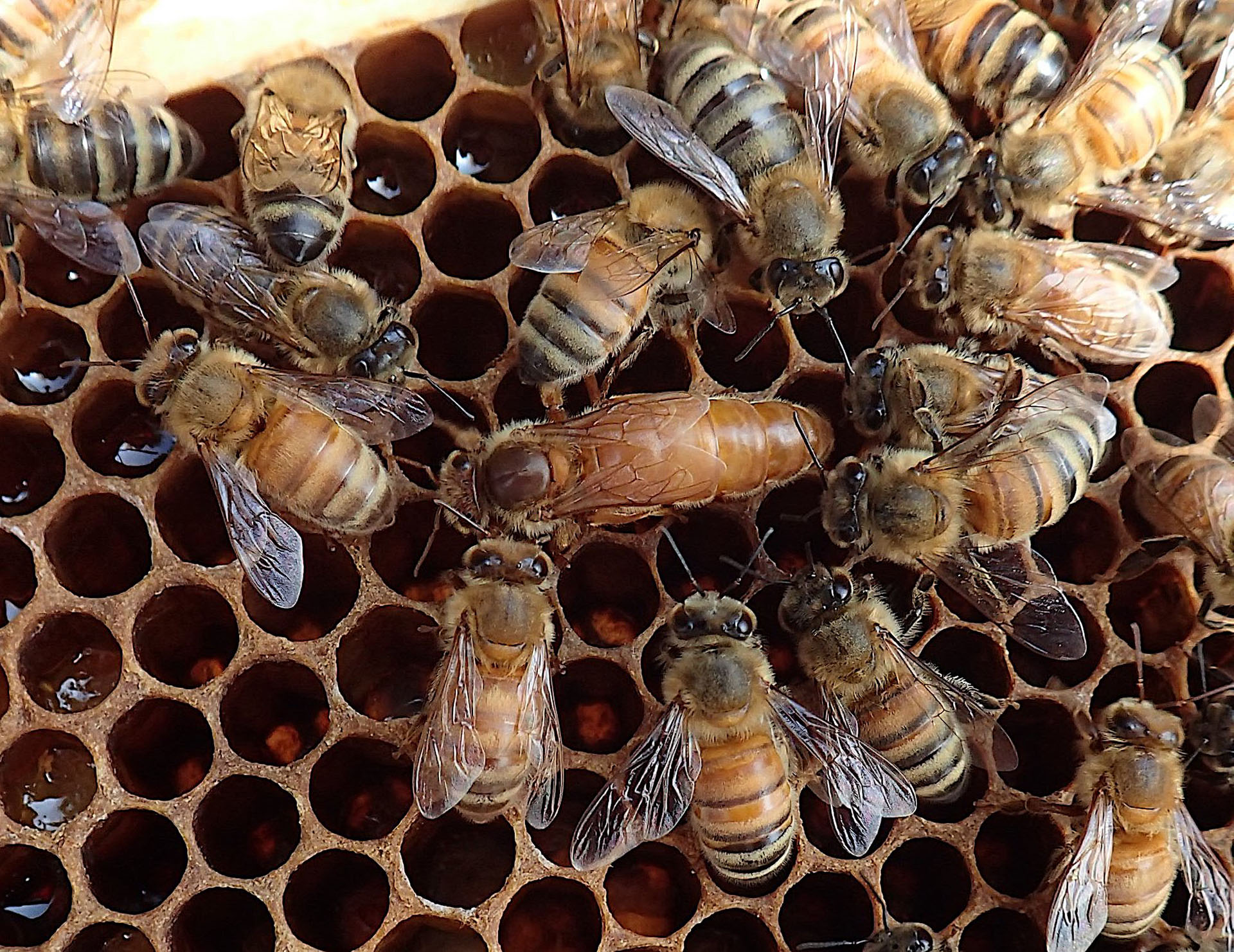Beekeeper Creates Buzz With Petition


East Hampton beekeeper Deb Klughers said she’d had enough after finding out a swarm of honeybees had been poisoned in Amagansett. Wanting to do something about it, she called local politicians and received no response. So, she took matters into her own hands.
The Eastern Apiculture Society certified master beekeeper started a petition to enact a New York law protecting honeybee swarms and colonies from extermination.
“It was totally unnecessary, and it reminded me that something needs to be done. This can’t keep going on,” Klughers said of the poisoning, adding that when she arrived on the scene two days after being told of the swarm, she found the bees still dying, covered in a black, sticky substance. “Honey bees are on the decline across America — across the world — and there’s no reason to be killing swarms,” she said. “A swarm of honeybees is at its most gentle and vulnerable life phase. It’s when they leave their home. It’s like the birth of a whole new colony. They’re just looking for a new home.”
Honeybees are not protected under the Endangered Species Act, and there are no federal laws to prohibit people from killing them, but neighboring New Jersey has a law in place that protects honey bee swarms and honey bee colonies that are in structures or places where they are unwanted.

The New Jersey law requires exterminators to make a good-faith effort to move a nuisance hive or a hanging swarm. The state apiarist’s permission is required before a hive can be exterminated, and in the event that the apiarist is not available, exterminators are required to try to contact at least three local beekeepers for help in moving the colony.
Assemblyman Fred W. Thiele Jr. said help may be on the way. He said he is a co-sponsor on a bill sponsored by Assemblyman Steve Englebright of Setauket, that would prohibit the sale of some pesticides that are known to harm birds and bees and require the state Department of Environmental Conservation To develop a strategy to develop pollinator-friendly lands.
“Pollinators such as honey bees are a major portion of the food chain and a big part of the environment. They’re under great stress, and not just with what we’ve seen here locally but across the globe,” Thiele said. “We’ve seen extremely adverse impacts from the uses of pesticides, whether it be to our drinking water, to public health in general, and also with regard to pollinators. The issue that Deborah has brought up with regard to the impact of pesticides on honey bees is real, and it needs to be addressed.”

Peak season to see or find honeybee swarms is May through June. They can contain tens of thousands of bees, but are harmless, according to Klughers, who has colonies in Montauk, a farm in Eastport, and manages bees in Stony Brook and Riverhead. She has a photo holding a swarm in her hands with a tank top on and zero protection to make her point, but said she does understand how those not knowing this may be frightened.
“I understand it is alarming,” she said. “It’s a giant swarm of thousands and thousands of bees. It’s a sight to see. It’s loud. It’s scary. But people reach for a poison to kill them.” Pumping poison into the wall of a house will not only kill the bees but also can kill mice and rats and create other issues, including odors and mold, she said.
Klughers’ Change.org petition already has more than 2650 signers. Some are fellow beekeepers, and others, like East Hampton’s Roey Ficaro, just see the need to protect bees.
“I am a dedicated lover of honeybees and believe they need to be protected so they can thrive and we can continue to enjoy the healing therapeutic benefits of honey as well as continue pollination, which is crucial to our existence,” she said.
“Bees die, we die,” added Bridgehampton resident Anne Rosch. “It’s really that simple.”

Honeybees play a vital role in the ecosystem, according to Aman Nakagawa, the director of planning and research at New York City’s Department of Health and Mental Hygiene. While pollination is of the utmost importance, products of the beehive — honey, pollen, propolis, beeswax, and bee venom — are medicinal. “They support the growth of trees, flowers, and plants, which serve as food and shelter,” Nakagawa added. “Bees contribute to complex, interconnected ecosystems that allow a diverse number of different species to exist together. Please make it illegal to poison bees.”
Klughers said she feels the world would be boring without honeybees, saying the food supply would be dull and expensive.
Klughers is spreading that message, while also letting people know that she’s not looking to ban agricultural chemicals, or any sprays used by homeowners to kill ticks or mosquitos, saying this is solely to protect honeybees that end up in a space they’re not wanted, like a grill, toy box, or shed. Honeybees move into a dark, dry cavity and never create their own holes or space.
“They aren’t like yellow jackets or hornets that come after you if you go by them,” she said. “Honeybees are just looking for nectar and pollen.”
Cornell University’s Dyce Lab for Honey Bee Studies, based in Ithaca, has an extensive list of beekeepers categorized geographically. Klughers said she’s received calls from people on Staten Island, and in Freeport, Orient Point, and other local locations with swarm sightings. When it’s local, she puts out messages on her social media channels to let the public know there’s no need to be alarmed.
“The legwork on who to call has been done. That is a resource that is already there and could be utilized when mirroring the New Jersey law, directing residents on who to call when they come across a swarm,” she said of the Dyce Lab list. “The thing is the people that are calling the beekeepers know what they’re dealing with. Other people don’t. With this law would come public education.”
desiree@indyeastend.com



